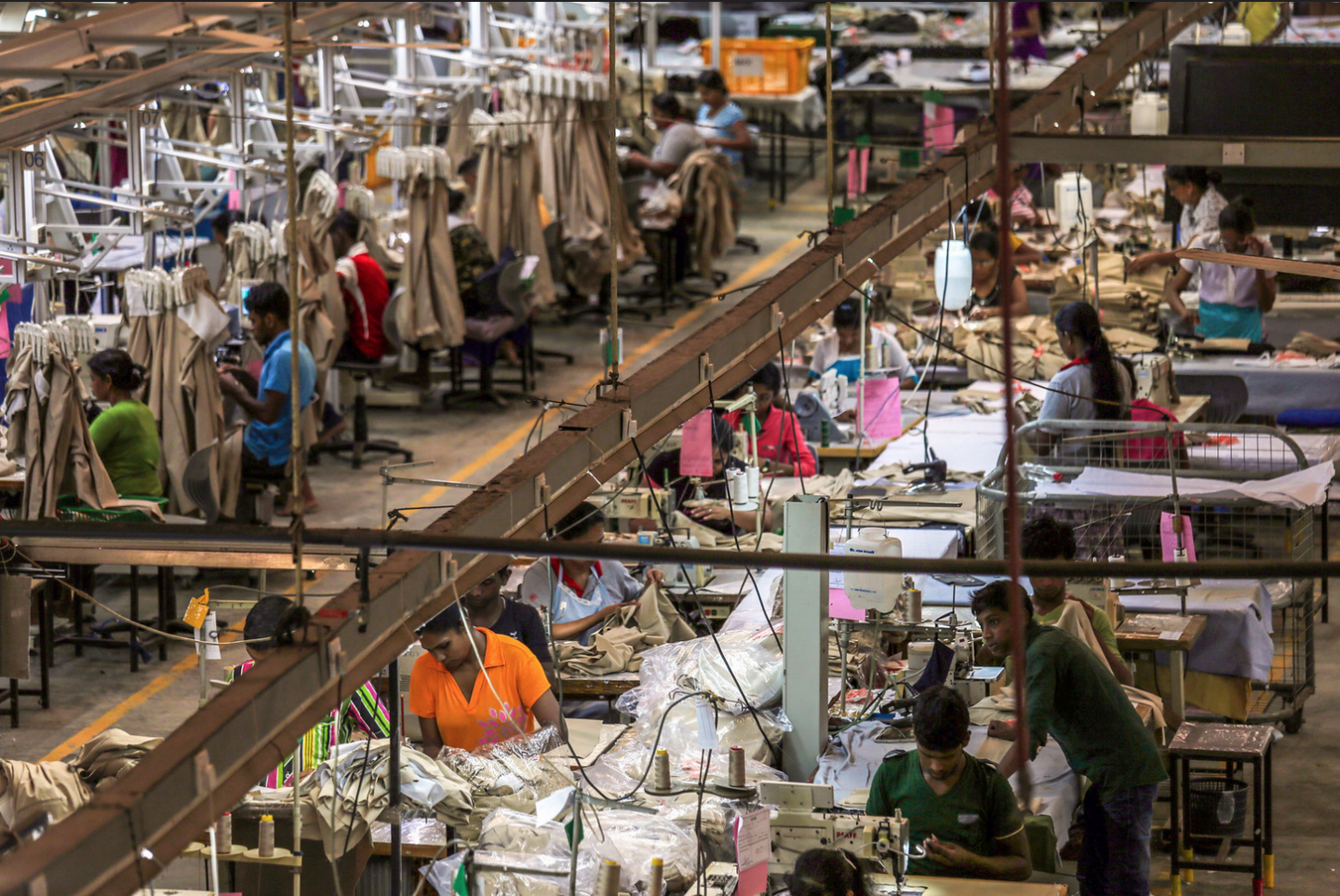20 October, 2020Garment workers in Sri Lanka were herded off into quarantine by the army in the middle of the night following a rapid increase of infections. Unions say that this could have been avoided by forming the recommended health committees.
According to reports, on 19 October the total number of Covid-19 cases in Minuwangoda Brandix increased to 2,122, including more than a thousand workers of Brandix apparel limited, their close contacts and family members.
This cluster accounts for nearly half of the total number of Covid cases in Sri Lanka and has received national attention.
Unions say that the army, which handles Covid quarantine centres, without prior information entered garment workers’ boarding rooms at night, asking them to immediately move to quarantine centres.
Anton Marcus, of Free Trade Zone & General Services Employees union, says:
“Had the factories formed health committees as decided by the tripartite taskforce, the health problems would have been identified earlier and this crisis could have been avoided. It is imperative that health committees are immediately formed in every garment factory.
"The forceful quarantine measures must stop and workers need to be treated with dignity. We appeal to the government to provide job security for the workers, income assurance as well as health and safety while ensuring that the crisis does not damage the industry as well.”
Workers were given no time to prepare or to gather their belongings. They were taken together, without following any safety processes like social distancing, to the distant quarantine centres. Workers were given no opportunity to let anyone know what was happening.
The fact that the quarantine centre lacked safety measures, basic sanitary facilities, health staff and access to good food meant an increased possibility of infection among the quarantined workers. Family members of the quarantined workers did not get any information; not even local government officials had any information.
Various reports suggest that company officials insisted on maintaining production to achieve set targets and failed to stop the developing health crisis among the workers.
Apoorva Kaiwar, IndustriALL regional secretary, says:
“We are deeply concerned over the harsh quarantine measures and its impact on workers and their families. The government of Sri Lanka should follow established international norms to control the pandemic while respecting patients’ rights. The government and employer should note that most of the patients of Minuwangoda Brandix cluster are women workers and ensure appropriate health safety measures are provided to them.”
Photo credit: Workers at Nordtext, Colombo, Sri Lanka. Asian Development Bank, Flickr
